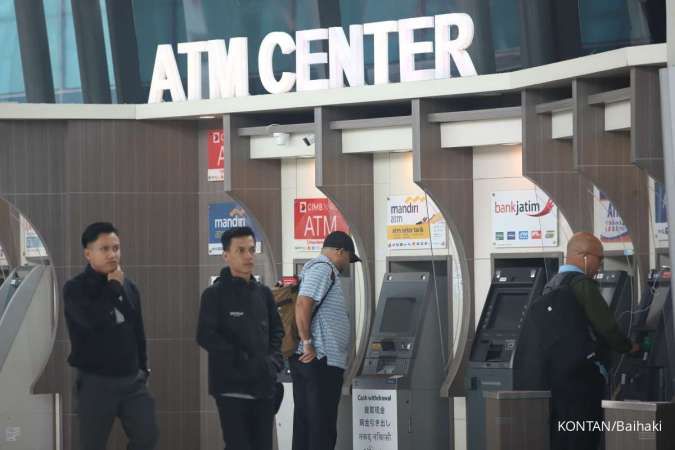Credit cards are a convenient financial tool that can help you manage your expenses, build credit, and even earn rewards. However, they can also be a gateway to debt if not used wisely. In Indonesia, where credit card usage is on the rise, it’s essential to understand how to avoid common credit card debt traps. This article will guide you through practical steps to maintain financial health and prevent falling into unnecessary debt.
Understanding the Risks of Credit Card Debt
Before diving into strategies to avoid debt, it’s important to recognize why credit cards can lead to financial trouble. Unlike other forms of debt such as mortgages or student loans, credit cards typically carry high-interest rates that compound quickly. If you don’t pay off your balance in full each month, the interest can accumulate rapidly, making it harder to get out of debt.
According to financial experts, credit cards are meant to be used as a short-term borrowing tool, not a long-term solution. When misused, they can become a significant burden on your finances. The key to avoiding debt lies in understanding how credit cards work and developing healthy spending habits.
1. Create and Stick to a Budget
One of the most effective ways to avoid credit card debt is by creating a budget. A budget helps you track your income and expenses, ensuring that you don’t spend more than you earn. Without a clear understanding of your financial situation, it’s easy to fall into the trap of using your credit card to cover unexpected costs or impulse purchases.
Here’s How to Handle It:
– List all your monthly expenses, including rent, utilities, groceries, and transportation.
– Compare your total expenses with your income to determine how much you can afford to spend.
– Use budgeting apps or spreadsheets to keep track of your spending and stay on top of your financial goals.
2. Pay Your Balance in Full Every Month
The best way to use a credit card is to pay the entire balance each month. This avoids accumulating interest and keeps your credit score strong. Many people fall into debt because they only make minimum payments, which can lead to a cycle of increasing balances.
Here’s How to Handle It:
– Make it a habit to pay your credit card balance in full every month.
– If you’re unable to pay the full amount, prioritize paying off the balance as soon as possible.
– Avoid charging more than you can afford to pay off at the end of the month.
3. Build an Emergency Fund
Life is unpredictable, and emergencies can happen at any time. Without an emergency fund, you may be forced to rely on your credit card to cover unexpected expenses, leading to debt. Experts recommend having at least three to six months’ worth of basic expenses saved in an emergency fund.
Here’s How to Handle It:
– Start small by setting aside a portion of your income each month for your emergency fund.
– Even if you can only save a little each week, consistency is key.
– Keep your emergency fund separate from your regular savings to ensure it’s used only for true emergencies.
4. Limit the Number of Credit Cards You Carry
Having multiple credit cards can increase your risk of overspending. Each card offers a different line of credit, making it easier to charge more than you can afford. This can lead to a snowball effect of debt that’s hard to manage.
Here’s How to Handle It:
– Only carry one or two credit cards when you go out.
– Keep the rest of your cards at home and use them only when necessary.
– Regularly review your credit card accounts to ensure you’re not carrying unnecessary cards.
5. Avoid Minimum Payments
While making the minimum payment on your credit card might seem like a good idea, it can actually prolong your debt. Most of your minimum payment goes toward interest rather than the principal balance, which means your debt will take longer to pay off.
Here’s How to Handle It:
– Try to pay more than the minimum whenever possible.
– If you can’t pay the full balance, focus on paying as much as you can to reduce the interest over time.
– Avoid using your credit card for new purchases until you’ve paid down your existing balance.
6. Distinguish Between Wants and Needs
Many people fall into credit card debt because they confuse wants with needs. Impulse buying and unnecessary purchases can quickly add up, especially if you don’t have a clear plan for your spending.
Here’s How to Handle It:
– Ask yourself whether a purchase is a need or a want before charging it.
– Practice mindful spending by taking time to think about your purchases.
– Set a limit on discretionary spending to avoid overspending.
7. Monitor Your Credit Card Statements
Ignoring your credit card statements can lead to missed payments, fraudulent charges, and unexpected fees. Regularly reviewing your statements ensures that you’re aware of all transactions and can catch any errors early.
Here’s How to Handle It:
– Check your credit card statement every month.
– Report any unauthorized transactions immediately.
– Set up alerts for large purchases or unusual activity.
8. Avoid Cash Advances and EMI Conversions
Cash advances and EMI (Equated Monthly Installment) conversions are expensive and should be avoided unless absolutely necessary. These options often come with high fees and interest rates, making them a costly way to access funds.
Here’s How to Handle It:
– Use your debit card or digital wallet for cash needs instead of your credit card.
– Avoid converting purchases into installments unless you’re certain you can afford the monthly payments.
9. Don’t Close Old Credit Cards Abruptly
Closing old credit cards can negatively impact your credit score by reducing your available credit and shortening your credit history. If you have an old card with no annual fee, consider keeping it active with a small recurring charge.
Here’s How to Handle It:
– Only close credit cards if you’re certain you won’t need them anymore.
– Keep older cards active by using them occasionally for small purchases.
– Set up auto-pay to ensure you never miss a payment.
Conclusion
Avoiding credit card debt requires discipline, awareness, and proactive financial management. By following these strategies—creating a budget, paying your balance in full, building an emergency fund, limiting the number of cards you carry, and monitoring your spending—you can protect yourself from the pitfalls of credit card debt. Remember, credit cards are tools, not solutions. When used wisely, they can enhance your financial life without leading to unnecessary debt.












